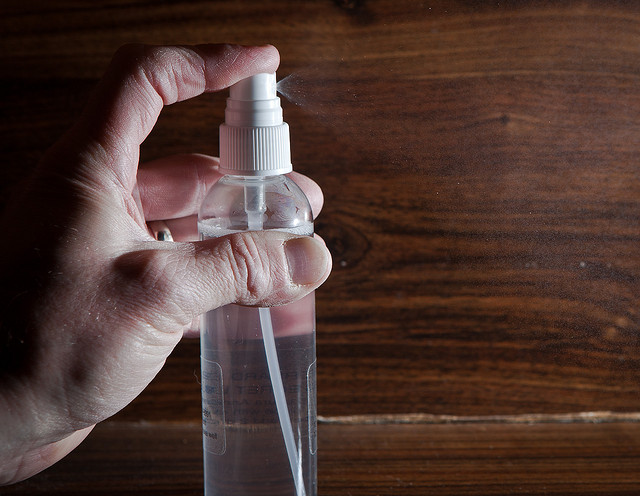Keep Flying Insects out of Your House, the Green Way
 Bzz … Buzz … Whoosh! Flying insects are definitely annoying. They can also be dangerous. Flies and mosquitoes spread all sorts of disease, while stings from hornet, wasps, or bees are painful and even life-threatening to anyone with an allergy. Outdoors, it's hard to avoid these creatures, but you definitely don't want them inside your home sweet home. How do you keep flying insects out without resorting to toxic pesticides?
Bzz … Buzz … Whoosh! Flying insects are definitely annoying. They can also be dangerous. Flies and mosquitoes spread all sorts of disease, while stings from hornet, wasps, or bees are painful and even life-threatening to anyone with an allergy. Outdoors, it's hard to avoid these creatures, but you definitely don't want them inside your home sweet home. How do you keep flying insects out without resorting to toxic pesticides?
Close Insects Out
If you don't already have them, install screens. (Even if you are renting and don't want to invest big bucks, buy inexpensive screening-by-yard and tack it in place.) Get a screen door for good measure. Keep it in top shape (repair any tears or holes posthaste) and teach your kids to keep it closed. Alternatively, fit it with a door closer.
Be aware, though, that insects are infernally tiny and persistent pests and it can take more than a screen -- or even a closed window -- to keep them out. Take care to seal any cracks or repair rotten wood in the frames of your doors and windows. Seal pipe penetrations too, and cover vents with fine mesh screen wherever possible. Fix gaps in the roofline as well, to close off the kind of spot where wasps and hornets like to nest. Many of these fixups offer the fringe benefit of increasing your home's cooling and heating efficiency.
Don't Stock Their Favorite Goodies
Keep your house and its close surroundings (porch, patio, and side yard) free of any of the "goodies" that flying insects especially love. Mosquitoes like to breed in stagnant water, which may bring to mind images of a filthy swamp. However, in reality any standing water spells potential trouble. Change the liquid in vases of cut flowers frequently, drain potted plant drip trays, and make sure that Rover or Fluffy gets a nice fresh bowl of H2O daily.
Wasps and bees count sweets as their favorite treat. Houseflies and fruit flies, on the other hand, are drawn to rotting food. (Yuck!) Don't leave leftovers out, whether they are from human's or pet's meals, and do refrigerate any fruit that's edging toward overripe. While you're at it, you can hide the honey jar in the fridge as well. Remember to regularly clean your sink strainer and drain to eliminate food particles. Cover indoor trash cans and compost bins. (If you accumulate compost relatively slowly, store bits and pieces in a container in the freezer until you have enough for a trip to the heap outdoors.)
Keep Them at Bay with Essential Oils and Herbs
Natural essential oils can be a great help in keeping insects at bay. These oils don't off-gas any dangerous substances into the environment -- instead, they actually add a pleasant smell to the atmosphere of your home. Just shake up 10 drops of oil in an 8 oz. spray bottle filled with warm water, then spritz throughout the room, particularly on cracks around windows or baseboards.
Lemon grass is good for repelling fruit flies and mosquitoes. In fact, skeeters seem to skedaddle when they catch a whiff of any one of a wide variety of scents -- basil, lemon eucalyptus, pine, thyme and many others. Use peppermint oil to ward off bees or wasps; don't try anything with a flowery perfume, which will only attract them more.
Are you overwhelmed by an infestation of flying insects? Find a pest control expert who'll use eco-friendly methods to get rid of the bugs that are bugging you.
Laura Firszt writes for networx.com.
Updated April 16, 2018.
Looking for a Pro? Call us (866) 441-6648

Pest control Average Costs
Exterminators Experiences

Concrete Patio Is The Finishing Touch For An Artist's Studio

Careful, Professional Tree Service Removes A Huge Norway Maple



